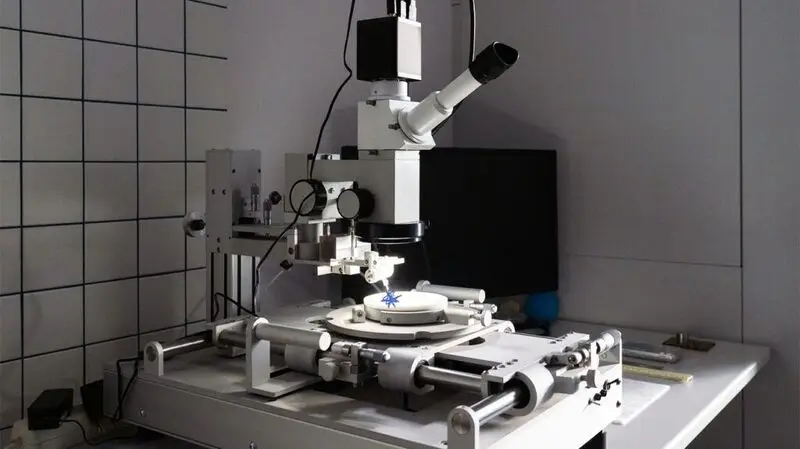
- In a new study, microbes normally found in the mouth were discovered in about one-half of examined colorectal tumors well as in stool samples of many people with colorectal cancer.
- Researchers reported that the microbes traveled from the mouth to the colon, going through the stomach and remaining intact when exposed to stomach acid.
- The scientists hope this discovery can lead to new treatment options for people with colorectal cancer.
Researchers have discovered a specific microbe typically found in the mouth in about one-half of cases of colorectal cancer.
In their new
The scientists at the Fred Hutchinson Cancer Center in Seattle set out to discover how microbes typically found in the mouth could travel to the lower gut, withstanding stomach acids, and then grow within colorectal tumors.
The researchers examined 200 cases of colorectal cancer. They reported that about half of the cancers contained the microbe. They also found the microbe in many stool samples taken from people with the cancer.
The microbes drive cancer progression and can lead to poorer outcomes.
At first, the researchers said they believed the predominant bacterium in colorectal cancers came from a single subspecies.
However, after studying them, they said they found two distinct types. Only one of the groups spurred growth in the tumors.
“We’ve consistently seen that patients with colorectal tumors containing Fusobacterium nucleatum have poor survival and poorer prognosis compared with patients without the microbe,” Susan Bullman, PhD, a cancer microbiome researcher at the Fred Hutchinson Cancer Center and co-corresponding study author, said in a press release. “Now, we’re finding that a specific subtype of this microbe is responsible for tumor growth. It suggests therapeutics and screening that target this subgroup within the microbiota would help people who are at a higher risk for more aggressive colorectal cancer.”
The scientists said the research presents significant opportunities for developing new treatment options. These options can use modified versions of the bacterium and be delivered directly into the tumor.
“This is vital research,” said Dr. Anton Bilchik, a surgical oncologist, chief of medicine, and the director of the Gastrointestinal and Hepatobiliary Program at Providence Saint John’s Cancer Institute in California. “We have two to three trillion microbiomes in our bodies. We have just begun learning how these can help treat disease and how they can be harmful and cause disease.”
“In this case, the microbiome travels down to the colon and leads to the development or worsening of colon cancer,” Bilchik, who wasn’t involved in the study, told Medical News Today. “These are very early findings. More studies will look for ways to use the microbes to determine if colon cancer is present or worsening. Right now, the research is to help us better understand the microbes and what they can tell us about colon cancer.”
“Currently, there is an epidemic of young people with colon cancer,” he added. “One possible explanation is the disruption of the microbiome in our colon. This could be from the overuse of antibiotics. Does that put people more at risk for diseases in the colon?”
Colorectal cancer, sometimes referred to as colon cancer, occurs when cells grow out of control in the large intestine or the rectum.
Although they are two separate types of cancer, they are often grouped because they share many characteristics.
These cancers almost always begin as polyps – mushroom-like growths inside the colon. Most polyps are benign, according to the
Most colorectal cancers are adenocarcinomas, which start in the mucus glands inside of organs. The cancer can spread to other parts of the body, such as the lungs, breast, prostate, pancreas, or colon.
Many people do not know they have colorectal cancer until it has spread. That is why early screening, such as colonoscopies, is so important.
According to the
- A change in bowel habits, such as diarrhea, constipation, or narrowing of the stool that lasts for more than a few days.
- A feeling that you need to have a bowel movement that is not relieved by having one.
- Rectal bleeding with bright red blood.
- Blood in the stool, which might make it look dark brown or black.
- Cramping or abdominal (belly) pain.
- Weakness and fatigue.
- Losing weight without trying.
Although anyone can develop colorectal cancer, some people have a higher risk, according to the
The people at higher risk include:
- People with a family history of colon or rectal cancer or having had cancer of colon, rectum, or ovary cancer in the past.
- Having had polyps that are larger than 1 centimeter or that have abnormal cells.
- Having had chronic ulcerative colitis or Crohn’s disease for eight or more years.
- Consuming three or more alcoholic drinks per day.
- Smoking tobacco
- Having obesity
Treatments for colorectal cancer are either local, systemic, or a combination of both, according to the
- Local treatments are often used on early-stage cancers. They include surgery to remove the tumor, ablation, and radiation therapy.
- Systemic treatments are drugs that reach cancer cells throughout the body. They include chemotherapy, targeted therapy, and immunotherapy.
In addition, there are complementary and alternative treatments, such as vitamins, herbs, or acupuncture. These can be used alongside traditional treatments to relieve pain or stress.
Speaking with your physician before using these treatments is essential to ensure they are safe and won’t interfere with your regular treatment.





